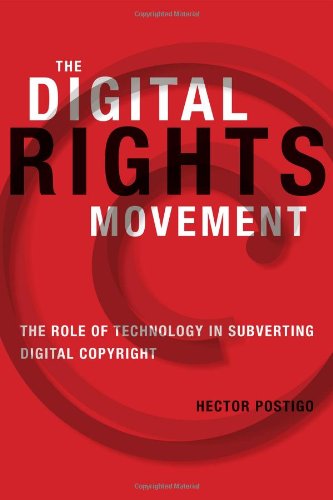
The Digital Rights Movement
by Hector Postigo
Publisher: The MIT Press 2012
ISBN-13: 9780262017954
Number of pages: 251
Description:
Postigo describes the legislative history of the DMCA and how policy 'blind spots' produced a law at odds with existing and emerging consumer practices. Yet the DMCA established a political and legal rationale brought to bear on digital media, the Internet, and other new technologies. Drawing on social movement theory and science and technology studies, Postigo presents case studies of resistance to increased control over digital media, describing a host of tactics that range from hacking to lobbying.
Download or read it online for free here:
Download link
(16MB, PDF)
Similar books
 Intellectual Property Rights in an Age of Electronics and Information
Intellectual Property Rights in an Age of Electronics and Information- U.S. Government Printing Office
This report examines the impact of recent advances in communication and information technologies on the intellectual property system. It focuses primarily on the Federal copyright system, and on the continuing effectiveness of copyright law ...
(8958 views)
 Copyright for Librarians: the essential handbook
Copyright for Librarians: the essential handbook- Berkman Center for Internet and Society
Delve into copyright theory, understand the public domain or explore enforcement. The Handbook is concise reading for librarians who want to hone their skills, and for anyone learning about or teaching copyright law in the information field.
(9758 views)
 Digital Copyright
Digital Copyrightby Jessica Litman - Michigan Publishing Services
Jessica Litman questions whether copyright laws crafted by lawyers and their lobbyists really make sense for the vast majority of us. Should every interaction between ordinary consumers and copyright-protected works be restricted by law?
(6834 views)
 Free Culture
Free Cultureby Lawrence Lessig - Penguin Press HC
Never before have the big cultural monopolists used the fear created by new technologies to shrink the public domain of ideas, even as the same corporations use the same technologies to control more and more what we can and can't do with culture.
(18614 views)